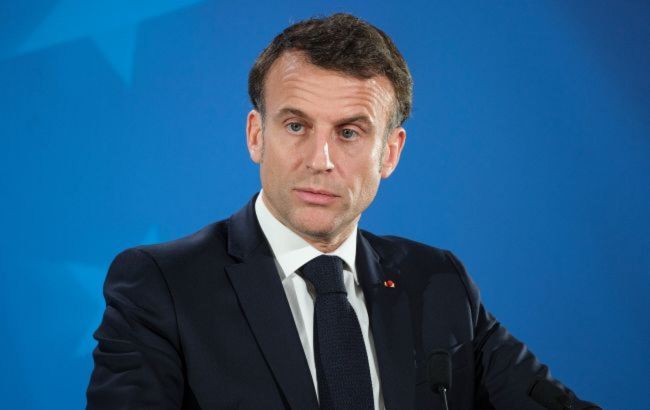Macron has no plans to resign despite government crisis in France
 Photo: Emmanuel Macron (Getty Images)
Photo: Emmanuel Macron (Getty Images)
French President Emmanuel Macron has refused to resign despite the threat of his fourth government in 16 months collapsing following a vote of no confidence from both right- and left-wing opposition parties, according to The Times.
In his first response to calls for his resignation from both opponents and some members of his own centrist bloc, Macron blamed the country’s deepest political crisis since the 1950s on party infighting and the presidential ambitions of other politicians.
Speaking in Sharm el-Sheikh, Egypt, where he attended the Peace Summit on the Gaza conflict, Macron distanced himself from the political turmoil being handled by Sébastien Lecornu, his 39-year-old close ally whom he reappointed as prime minister on Friday, October 10.
The president said his duty to the electorate that directly chose him in 2017 and 2022 was to ensure stability until the end of his term in April 2027.
"Never forget that the mandate the French people give their president is to serve, serve, and serve again, and to answer the questions that concern the French in their daily lives. That’s the only thing that matters. The rest is the government’s job," Macron said.
He stressed that "full responsibility for this chaos" lies with the political forces that destabilized Lecornu.
Political turbulence
According to The Times, opposition leaders, analysts, and most citizens blame the 47-year-old Macron for the current turbulence.
The crisis began when Macron called snap parliamentary elections in June 2024 to block the rise of Marine Le Pen’s far-right National Rally.
Although the centre-left alliance won the most seats, Macron formed a government from his centrist bloc and centre-right allies.
Lecornu’s reappointment followed the failure of his first attempt to form a cabinet, a move widely viewed as a last-ditch effort by Macron to retain control until the submission of the 2026 budget.
Editorial in Le Monde warned:
"By insisting on appointing one of his closest allies while relying on an increasingly narrow political base, the head of state risks turning this major political crisis into a prolonged paralysis of institutions, and eventually into a constitutional crisis."
Chairing his first cabinet meeting on Monday, Lecornu said his "only mission is to overcome the political crisis." His new cabinet includes more Macron loyalists than previous governments led by Michel Barnier and François Bayrou.
On Tuesday, October 14, Lecornu is set to present his program and a budget aimed at reducing France’s soaring deficit to the National Assembly.
Le Pen's move
Meanwhile, Marine Le Pen’s National Rally, the largest single party in parliament, and Jean-Luc Mélenchon’s far-left France Unbowed have submitted no-confidence motions, likely to be voted on Wednesday or Thursday. Their joint effort could topple the government if the Socialists join them.
In exchange for abstaining, the Socialist Party, which holds 12% of the seats, demands that Lecornu suspend Macron’s pension reform pushed through in 2023 despite massive protests. Lecornu has offered to delay its implementation until after the 2027 elections, angering conservatives.
This prompted Interior Minister Bruno Retailleau, leader of the Republicans, to pull his party from the coalition, a move not supported by six of his colleagues who remained in the new cabinet, including Culture Minister Rachida Dati, a Republican candidate for Paris mayor next spring.
Marine Le Pen declared that Macron has "no choice but to call new elections," predicting victory for her party and stating that Jordan Bardella, 30, should become prime minister while she prepares for her fourth presidential run.
"The president must dissolve the National Assembly as soon as possible to let the French people choose a new majority, one that will undoubtedly be led by Jordan Bardella," Le Pen said.
The Times concluded that Macron is counting on Socialists' fear of electoral annihilation to keep them from dealing a final blow to yet another fragile government.
Government crisis in France
On September 8, the National Assembly voted no confidence in the government of François Bayrou, with 364 deputies supporting the motion.
On September 9, Macron appointed Sébastien Lecornu, then defense minister, as the new prime minister.
Lecornu’s first cabinet lasted just 27 days amid internal disputes.
He resigned on October 6, but Macron re-nominated him on October 10.
The new government was announced on October 13, and Lecornu pledged to submit the 2026 budget as a priority.
The Socialist Party now demands the reversal of Macron’s pension reform and a wealth tax, while right-wing forces refuse to back such measures.
On October 8, the Bureau of the National Assembly rejected an impeachment motion against Macron initiated by France Unbowed.

